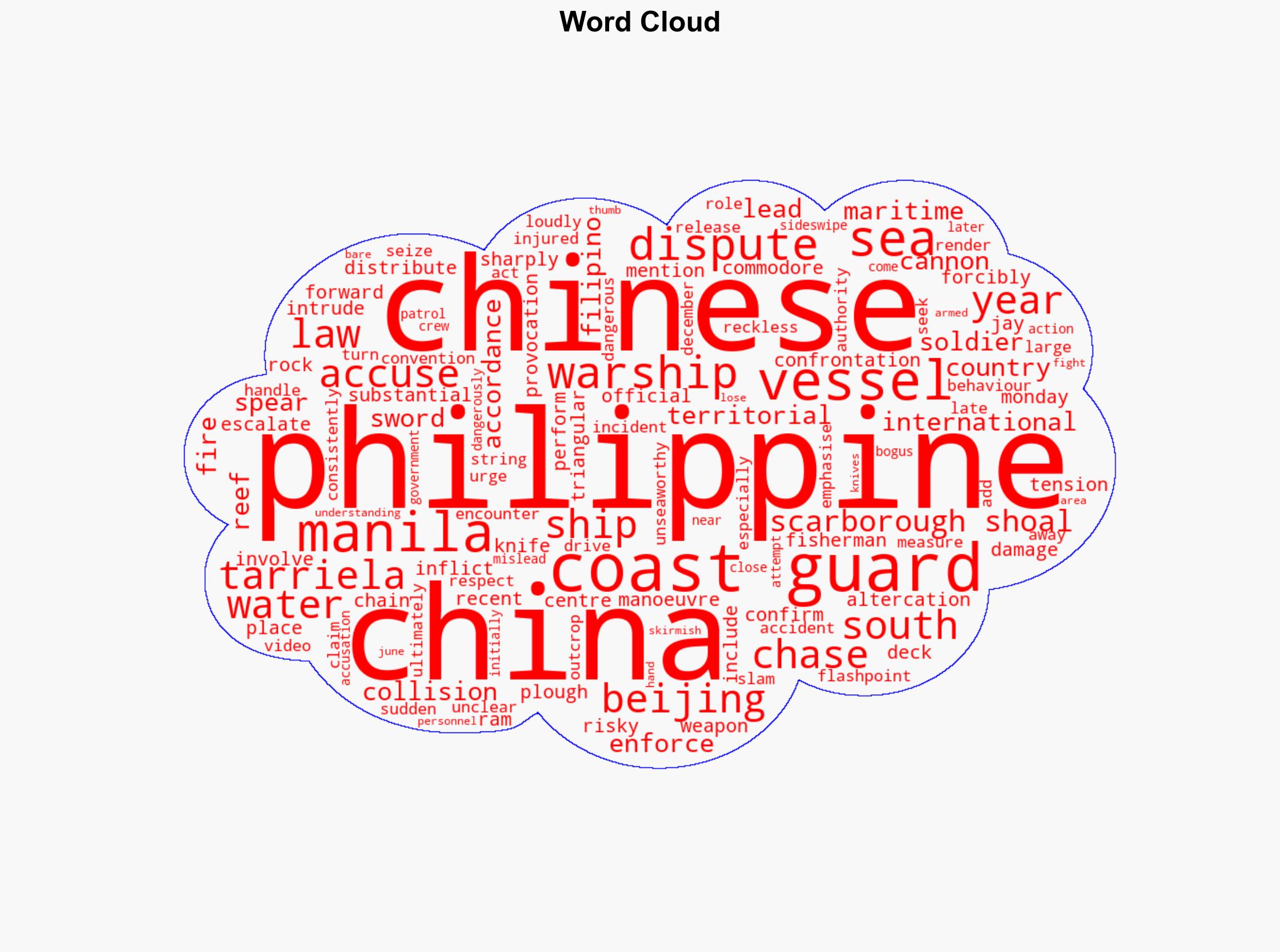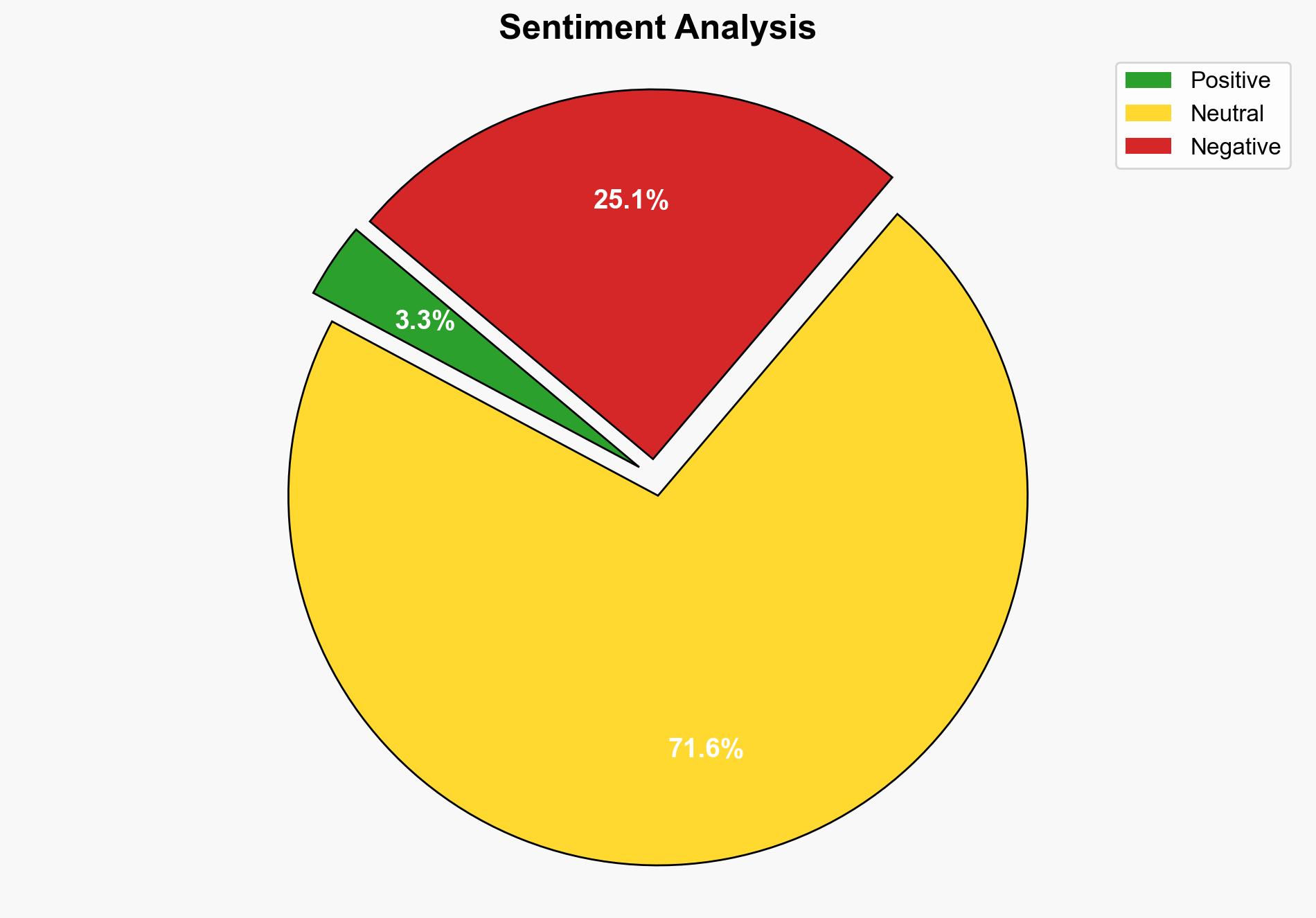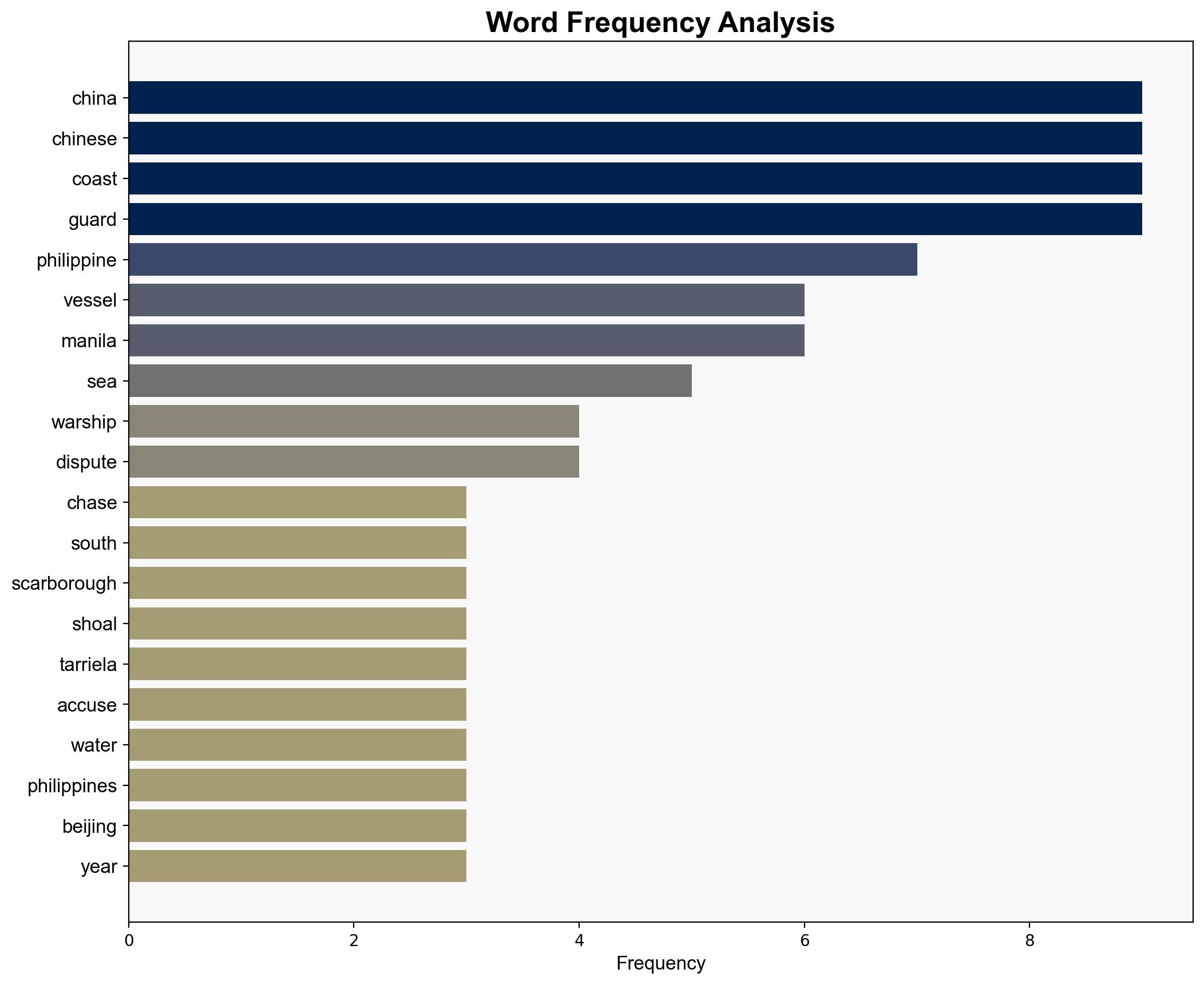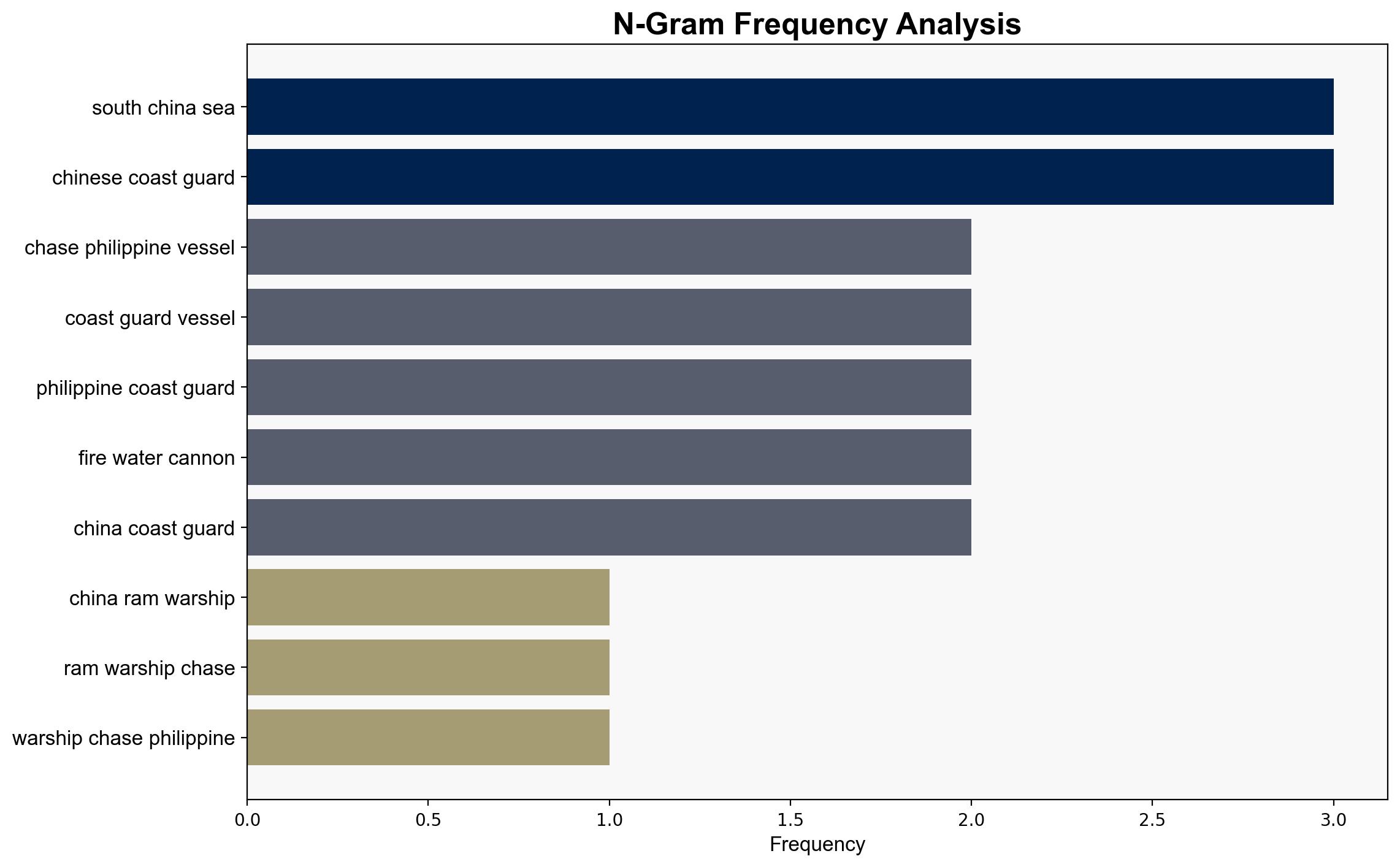China rams own warship while chasing Philippine vessel – BBC News
Published on: 2025-08-11
Intelligence Report: China rams own warship while chasing Philippine vessel – BBC News
1. BLUF (Bottom Line Up Front)
The incident involving a Chinese warship colliding with another Chinese vessel while pursuing a Philippine ship in the South China Sea highlights escalating tensions and potential miscalculations in the region. The most supported hypothesis suggests this was an unintended consequence of aggressive maneuvers. Confidence level: Moderate. Recommended action: Increase diplomatic engagement and establish clearer communication protocols to prevent future incidents.
2. Competing Hypotheses
Hypothesis 1: The collision was an unintended consequence of aggressive maneuvering by the Chinese Coast Guard, reflecting heightened tensions and poor coordination.
Hypothesis 2: The incident was a deliberate act by China to escalate tensions and assert dominance, using the collision as a pretext to justify further aggressive actions in disputed waters.
Using ACH 2.0, Hypothesis 1 is better supported due to the lack of evidence suggesting premeditation and the historical pattern of similar unintended incidents in the region.
3. Key Assumptions and Red Flags
Assumptions:
– Both hypotheses assume the Chinese Coast Guard’s actions were intentional, albeit with different motivations.
– The analysis assumes the video evidence released by Manila is accurate and unaltered.
Red Flags:
– Potential cognitive bias in interpreting aggressive maneuvers as intentional rather than accidental.
– Lack of independent verification of the incident details raises questions about the completeness of the narrative.
4. Implications and Strategic Risks
The incident could lead to increased military presence and heightened risk of further confrontations in the South China Sea. There is a potential for economic repercussions if trade routes are disrupted. Geopolitically, this may strain China’s relations with neighboring countries and the international community. Psychologically, it could embolden nationalist sentiments within China and the Philippines.
5. Recommendations and Outlook
- Engage in diplomatic dialogue with China and the Philippines to de-escalate tensions and establish maritime communication protocols.
- Monitor regional military activities to anticipate potential escalations.
- Scenario Projections:
- Best Case: Successful diplomatic engagement leads to reduced tensions and improved maritime cooperation.
- Worst Case: Continued aggressive actions result in a military confrontation, disrupting regional stability.
- Most Likely: Periodic incidents continue, with both sides maintaining a status quo of heightened alertness.
6. Key Individuals and Entities
– Commodore Jay Tarriela (Philippine Coast Guard)
7. Thematic Tags
national security threats, regional focus, maritime security, geopolitical tensions





